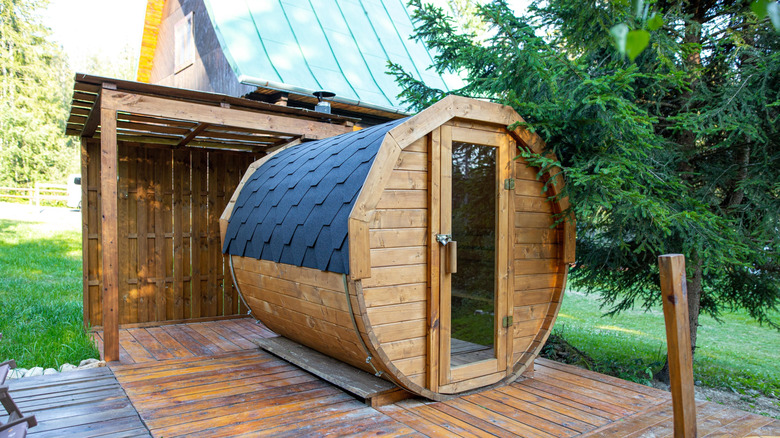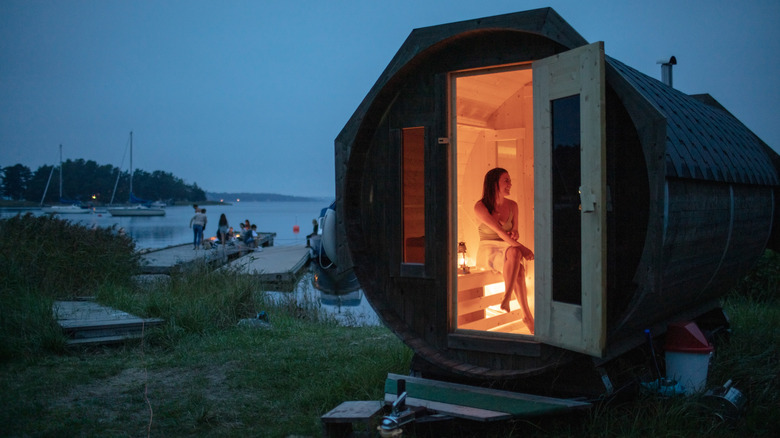Downsides To Owning An Outdoor Sauna That Nobody Talks About
Nothing makes the stress of a hard day of work fall off faster than a nice sweat session in a sauna. Not only does a hot sauna session send sweat through your pores, but it can help with skin health, stress relief, and muscle relaxation. An indoor sauna is a great option if you have space in your house, but many homeowners choose an outdoor sauna to sweat away the day's stress and pressures due to its ease of installation.
Outdoor saunas are great when you have indoor space limitations, are looking to create a wellness yard, or want to increase your home's property value. You can hire a pro to install it, or you can DIY an outdoor sauna for cost-efficiency if you have the know-how. However, owning an outdoor sauna can have some major drawbacks. These include the constant maintenance that it needs, the elevated energy costs from operating the sauna, and accessibility issues in extreme weather.
Breaking down the cons of breaking a sweat in an outdoor sauna
One of the more minor (but nevertheless annoying) cons of owning an outdoor sauna is the fact that you'll need to brave the weather elements to enjoy your sweat session. And while that might not be a bad thing when there's a crisp fall breeze in the air, braving sub-zero temps or a snowstorm is a different story. And if you live in a part of the U.S. that gets bad weather often, you will either have to brave the bad weather or choose not to use your outdoor sauna regularly.
Speaking of the weather, one of the more significant downsides of owning an outdoor sauna is the maintenance that it requires. Since it sits out in the elements and not in the protection of your home, an outdoor sauna will need maintenance that an indoor sauna will not require. This includes sweeping and vacuuming regularly, pressure washing occasionally, and minor exterior repairs when needed.
Unless you have a wood-burning outdoor sauna, you'll be using electricity to run and heat it. If you live somewhere where the temperatures get really cold (thinking of you, Alaska and North Dakota), you'll need more electricity to keep your sauna hot and sweat-ready. In comparison, an indoor sauna, while it still uses electricity, won't use as much due to its mild indoor environment. Along the same lines, the cost of sauna installation is typically greater for outdoor options over indoors, making outdoor saunas the more expensive option overall.

